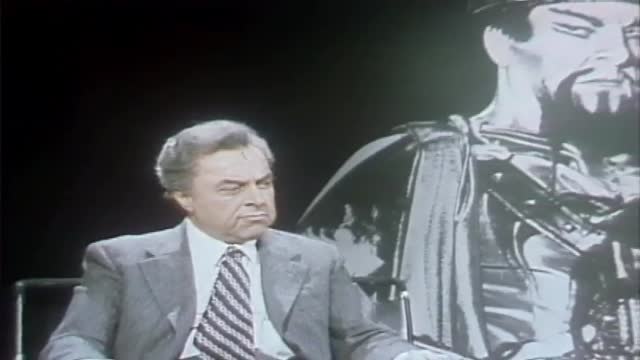Boris Christoff’s father was a teacher and a keen amateur singer; his mother was of Russian extraction. After graduating in law in Sofia, he practised as a magistrate while singing with the male-voice Gusla choir. Having enjoyed great success as a chorus soloist in 1940, in 1942 Christoff so impressed King Boris of Bulgaria that he arranged a scholarship for him to study with Riccardo Stracciari in Rome. When Rome fell to the Allies, Christoff travelled to Salzburg, where he continued his studies with Muratti; but by the end of World War II he found himself in a camp for displaced persons. Eventually however he was able to return to Rome and to continue his studies with Stracciari.
At the end of December 1945, at the Accademia di Santa Cecilia in Rome, Christoff made his concert début, followed by his operatic stage début early in 1946 at Reggio Calabria as Colline/La Bohème. This was so successful that his aria in Act IV, the ‘Coat Song’, had to be encored. During the following season he first appeared at La Scala, Milan (as Pimen/Boris Godunov) and later at Florence, Naples, Rome, Trieste and Venice.
In November 1949 Christoff sang the title rôle in Boris Godunov at the Royal Opera House, Covent Garden. Despite the fact that he sang in Russian, but the rest of the cast in English, his interpretation was so intense that he completely dominated the performance. He repeated the same rôle shortly afterwards at La Scala and subsequently in many of the leading European and American opera houses. With few Russian basses singing in Western Europe and the USA after the war Christoff, with his pronounced Slavic performance style, was to be in great demand. He was quickly taken up by EMI, who invited him to record all three principal bass parts (Boris, Pimen and Varlaam) in the complete recording of Boris Godunov conducted Issay Dobrowen, made in Paris in 1951. This was the start of a signifcant recording presence, on both commercial and unofficial releases.
Christoff was invited to sing at the Metropolitan Opera, New York, in 1950; but this was an era of anti-Communist fever in America. As a Bulgarian Christoff was unable to obtain the requisite visa and never in fact sang in New York. In Europe however his career continued to flourish. In 1950 he sang what was to be one of his greatest rôles, Philip II/Don Carlo, at the Maggio Musicale in Florence. This was followed at the 1951 Maggio Musicale by Procida/I vespri siciliani opposite Maria Callas, with Erich Kleiber conducting.
His international career now in full swing, Christoff established himself as one of the leading operatic basses of the post-war generation, his repertoire based firmly on the twin peaks of the Verdi operas and of the Russian repertoire (Dosifey/Khovanshchina, both Prince Galitsky and Khan Konchak/Prince Igor, Kochubey Mazeppa, Ivan Susanin/A Life for the Tsar, as well as Boris Godunov). He also however covered a wide spectrum of more unusual rôles, from Agamemnon/Iphigénie en Aulide (Gluck) to an extremely affecting Don Quichotte (Massenet). Christoff eventually made his American début in 1956, singing Boris at San Francisco, and from 1957 to 1963 appeared annually with the Lyric Opera of Chicago, often with his brother-in-law, Tito Gobbi. He also appeared at Rio de Janeiro, Barcelona and Paris. With Gobbi in 1958 he made an unforgettable impression in Luchino Visconti’s historic production of Don Carlo at Covent Garden where he was held in the highest regard, returning there regularly until 1979.
In 1964 Christoff underwent an operation for a brain tumour and was unable to sing for a year. He afterwards resumed his career, though at a slower pace, but during the 1970s his onstage performances became rare and he brought his distinguished career as a singer to a close with a concert at the Accademia di Bulgaria in Rome in 1986. During the following year Christoff suffered a stroke, the consequences of which eventually caused his death six years later.
Although Christoff’s voice was not large, it had a very distinctive timbre which was immediately identifiable and which he used to great effect. Onstage he was able to generate enormous dramatic tension with a great ecocnomy of means, and above all was able to achieve complete psychological identification with the rôles which he was playing and to communicate this most effectively to the audience. It was the combination of vocal and dramatic insight which gave his performances such character and which made them so memorable. Christoff was in addition a fine recitalist, recording more than 200 Russian songs, including the complete songs of Mussorgsky.
© Naxos Rights International Ltd. — David Patmore (A–Z of Singers, Naxos 8.558097-100).
| Title | |
| Vocal Recital: Christoff, Boris - MOZART, W.A. / MUSSORGSY, M. / ROSSINI, G. / VERDI, G. (Live in Lugano, 1976) | |

|
Vocal Recital: Christoff, Boris - MOZART, W.A. / MUSSORGSY, M. / ROSSINI, G. / VERDI, G. (Live in Lugano, 1976)
Composers:
Mozart, Wolfgang Amadeus -- Mussorgsky, Modest Petrovich -- Rossini, Gioachino -- Verdi, Giuseppe
Artists:
Amaducci, Bruno -- Christoff, Boris -- Orchestra della Svizzera Italiana
Label/Producer: Dynamic |
